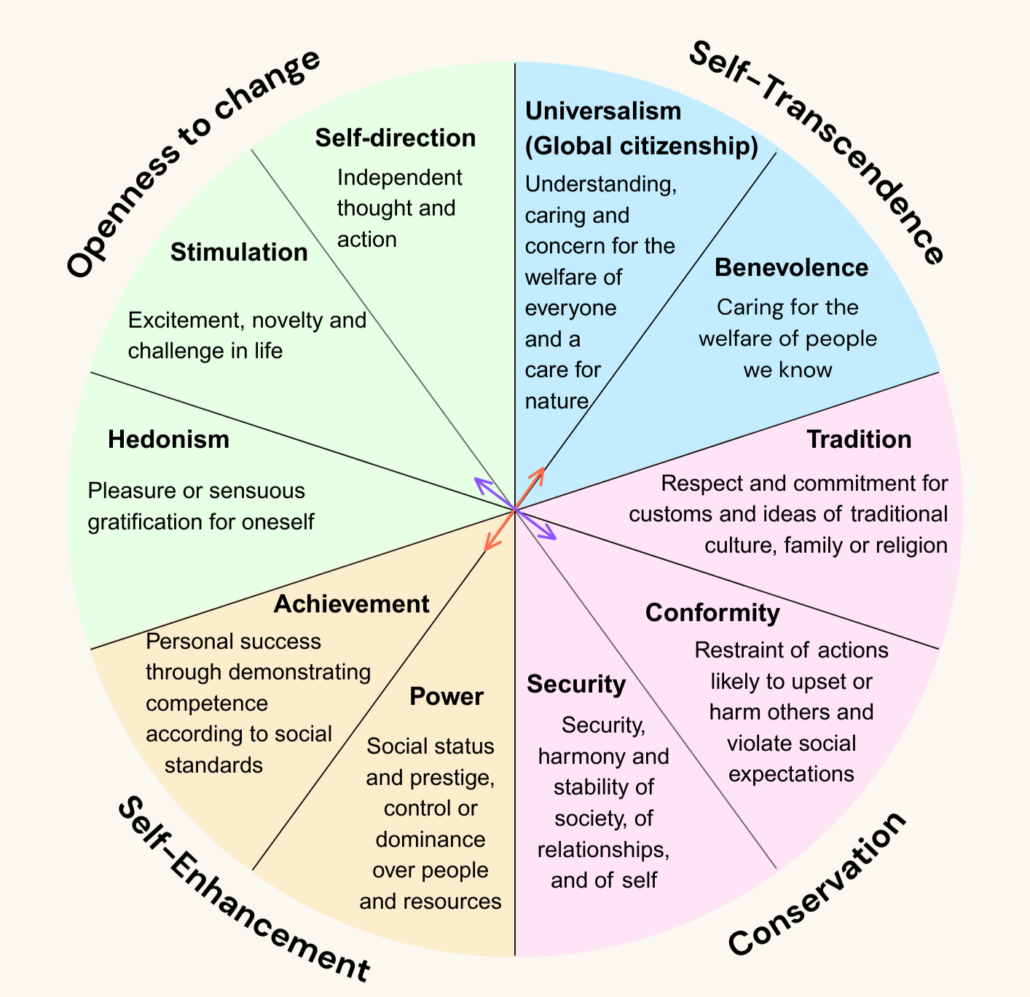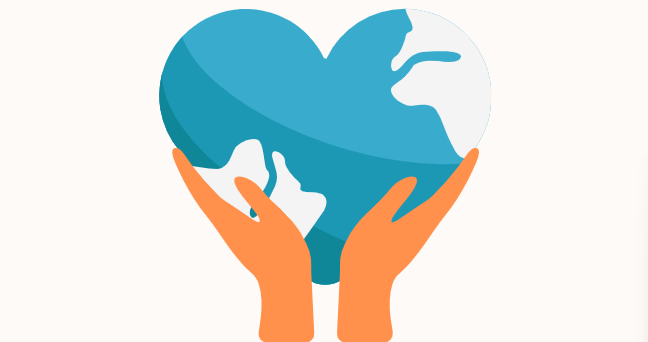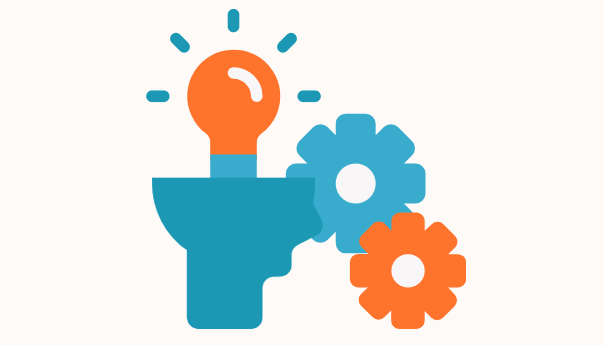Values are broad goals that shape the way we live. To reflect on your own values, simply ask yourself “What matters to me in life?” or “What kind of person do I want to be?”. The answer to questions like these provide insights into your own values and what you believe it means to live a good and meaningful life. For example, you might want to be a kind person, so you value benevolence (caring for those close to you).
The Value Circle

The Value Circle was developed by Shalom Schwartz (1992) based on research from around the world.
The bleed-over effect
Values close to each other in the circle share similar motivations and goals. This means that when you behave in a way that expresses one value, it wil also express neighbouring values.
For example, following social norms like queueing to pay at the shops expresses the value of conformity, but also expresses the value of tradition as it’s respecting customs.
The seesaw effect
Values opposite eachother in the circle cannot be expressed in the same action:
When conservation values are expressed, this discourages openness to change values.
Below are the definitions of the broadest values
Self- transcendence values

Global citizenship/universalism = Understanding, caring and concern for the welfare of everyone and a care for nature.
Benevolence = caring for the welfare of people we know.
Conservation values

Tradition = respect and commitment for customs and ideas of traditional culture, family or religion.
Conformity = restraint of actions likely to upset or harm others and violate social expectations.
Security = Security, harmony and stability of society, of relationships and of self.
Self-enhancement values

Power = social status and prestige, control or dominance over people and resources.
Achievement = personal success through demonstrating competence according to social standards.
Openness to change values

Hedonism = pleasure or sensuous gratification for oneself.
Stimulation = excitement, novelty and challenge in life.
Self-direction = independent thought and action.

